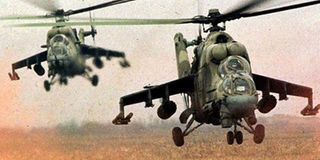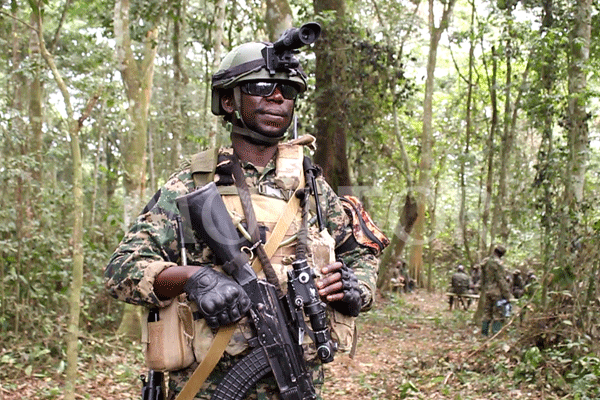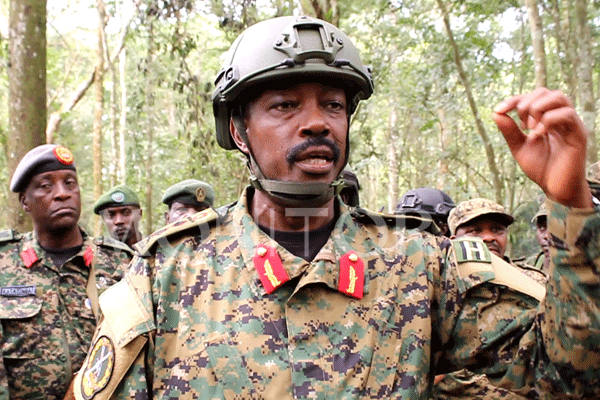Student 'seriously wounded' in DR Congo army op

At least one student was "seriously wounded" Saturday when an army air strike hit a school in the troubled northeast of the Democratic Republic of Congo, local sources said.
What you need to know:
- Local community leader, Ngandru Dede Lombela, said the bomb had fallen in the playground "at around 10:00 am when the children were on their break".
- Gold-rich Ituri, on DRCongo's border with Uganda, has seen a flare-up in violence since the end of 2017 after 20 years of relative calm.
At least one student was "seriously wounded" Saturday when an army air strike hit a school in the troubled northeast of the Democratic Republic of Congo, local sources said.
"At around 9:00 this morning (0700 GMT), two FARDC (army) helicopters came to bomb around Petsi's health centre and school," Maki Angaika, a nurse at the health centre said.
"They fired when the children were in the playground. One of the students was seriously wounded in the head.
"There has been no physical damage to the buildings. The population has fled, we stayed here in the health centre with the sick," he added.
Local community leader, Ngandru Dede Lombela, told AFP the bomb had fallen in the playground "at around 10:00 am when the children were on their break".
An army spokesman in Ituri, the district where the incident happened, said military operations had been carried out in the zone, but gave no details on the intended targets or details of casualties.
Gold-rich Ituri, on DRCongo's border with Uganda, has seen a flare-up in violence since the end of 2017 after 20 years of relative calm.
Clashes, which were at first sporadic, became more frequent in 2019 as rival groups became more organised and better armed.
One of the most violent armed groups there is the political-religious sect the Cooperative for the Development of the Congo (CODECO).
It is engaged in a bitter ethnic feud between the Lendu, which the group claims to defend, and the Hema.
Ituri province, like North Kivu just to the south, has been under a "state of siege" since May, in a bid to step up a military offensive against the armed groups, with soldiers replacing civil servants in key positions.
Thus far however, the army has been unable to halt the violence of the various armed groups operating there.





